Highlight Actions
Enable or disable annotations
O what can ail thee, knight-at-arms,
Alone and palely loitering?
The sedgesedge Grasslike or rushlike plant that grows in wet areas. has withered from the lake,
And no birds sing.
O what can ail thee, knight-at-arms,
So haggardhaggard Wild looking and so woe-begonebegone To happen, occur, transpire ?
The squirrel’s granary is full,
And the harvest’s done.
I see a lily on thy brow,
With anguish moist and fever-dew,
And on thy cheeks a fading rose
Fast withereth too.
I met a lady in the meadsmeads Meadow ,
Full beautiful—a faery’s child,
Her hair was long, her foot was light,
And her eyes were wild.
I made a garland for her head,
And bracelets too, and fragrant zone;
She looked at me as she did love,
And made sweet moanmade sweet moan Compare "virgin-choir to make delicious moan" from Ode to Psyche (30), written between April 21 and 30, 1819. Noted by John Barnard in John Keats: The Complete Poems (Penguin, 2003).
I set her on my pacing steed,
And nothing else saw all day long,
For sidelong would she bend, and sing
A faery’s song.
She found me roots of relish sweet,
And honey wild, and manna-dewhoney wild, and manna-dew Echoes manna in the Bible, first described in Exodus, 16:14-21, 31. The Israelites eat the manna, a food miraculously supplied in the wilderness after the dew has lifted, in the morning: “The house of Israel called it manna; it was like coriander seed, white, and the taste of it was like wafers made with honey” (Exodus 16:31, NRSV).,
And sure in language strange she said—
‘I love thee true’.
She took me to her Elfin grotElfin grot An elf’s grotto ,
And there she wept and sighed full sore,
And there I shut her wild wild eyes
With kisses four.
And there she lullèd me asleep,
And there I dreamed—Ah! woe betide!—
The latest dream I ever dreamt
On the cold hill side.
I saw pale kings and princes too,
Pale warriors, death-pale were they all;
They cried—‘La Belle Dame sans MerciLa Belle Dame sans Merci This phrase—and the poem’s title—is from Alain Chartier’s courtly French ballad, “La Belle Dame sans Merci” (1424). Keats wrote the poem in a letter to George and Georgiana Keats, April 21, 1819.
Thee hathThee hath The version of this poem has “Thee hath” (see The Letters of John Keats, 1814-1821, ed. H. E. Rollins, 1958); though other versions of this poem reads “Hath thee” in thrall!’
I saw their starved lips in the gloamgloam Twilight; Keats coined the word from “gloaming”,
With horrid warning gapèd wide,
And I awoke and found me here,
On the cold hill’s side.
And this is why I sojournsojourn To stay or visit temporarily here,
Alone and palely loitering,
Though the sedge is withered from the lake,
And no birds sing.







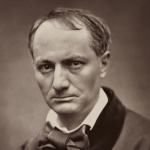


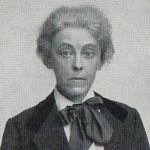


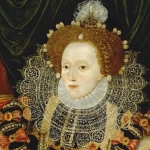

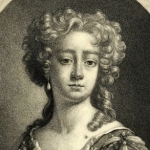
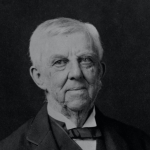
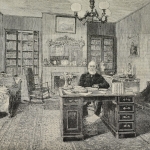
Comment form: